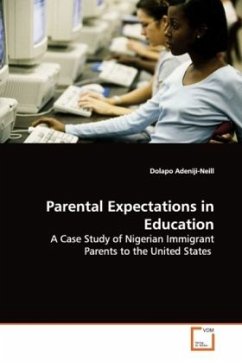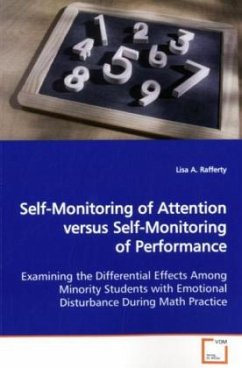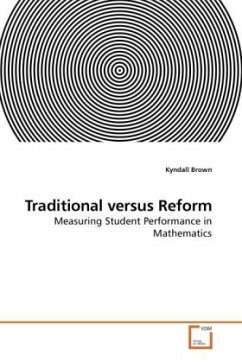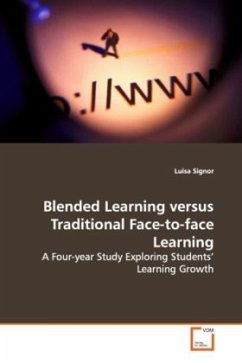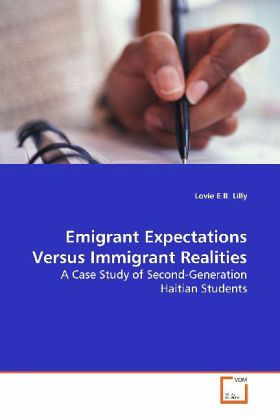
Emigrant Expectations Versus Immigrant Realities
A Case Study of Second-Generation Haitian Students
Versandkostenfrei!
Versandfertig in 6-10 Tagen
38,99 €
inkl. MwSt.

PAYBACK Punkte
19 °P sammeln!
This research study examines how Haitian students adjust and achieve in a public high school setting. Most often, the students are products of aneducational system that, according to historicalaccounts, has not systematically educated children. Research reveals that some Haitian students have nothad stable, developmental educational experiences. As these learners enroll in American schools,particularly at the secondary level, severalobstacles await students and educators alike. ForHaitian learners, issues related to ethnic identity,and sociocultural and linguistic differences,oftentimes threat...
This research study examines how Haitian students
adjust and achieve in a public high school setting.
Most often, the students are products of an
educational system that, according to historical
accounts, has not systematically educated children.
Research reveals that some Haitian students have not
had stable, developmental educational experiences.
As these learners enroll in American schools,
particularly at the secondary level, several
obstacles await students and educators alike. For
Haitian learners, issues related to ethnic identity,
and sociocultural and linguistic differences,
oftentimes threaten learning and achievement.
Familial expectations that were formulated before the
migratory process are diminished by the challenges of
acclimatization and the inability of school systems
to accommodate their learning needs. Utilizing
interviews, observations, and the interpretation of
previous and current school records as primary data
sources, a case study of Haitian students
experiences was constructed. Based on the findings,
implications for educational leadership, policy
development, teacher training, and programmatic
initiatives are offered.
adjust and achieve in a public high school setting.
Most often, the students are products of an
educational system that, according to historical
accounts, has not systematically educated children.
Research reveals that some Haitian students have not
had stable, developmental educational experiences.
As these learners enroll in American schools,
particularly at the secondary level, several
obstacles await students and educators alike. For
Haitian learners, issues related to ethnic identity,
and sociocultural and linguistic differences,
oftentimes threaten learning and achievement.
Familial expectations that were formulated before the
migratory process are diminished by the challenges of
acclimatization and the inability of school systems
to accommodate their learning needs. Utilizing
interviews, observations, and the interpretation of
previous and current school records as primary data
sources, a case study of Haitian students
experiences was constructed. Based on the findings,
implications for educational leadership, policy
development, teacher training, and programmatic
initiatives are offered.



